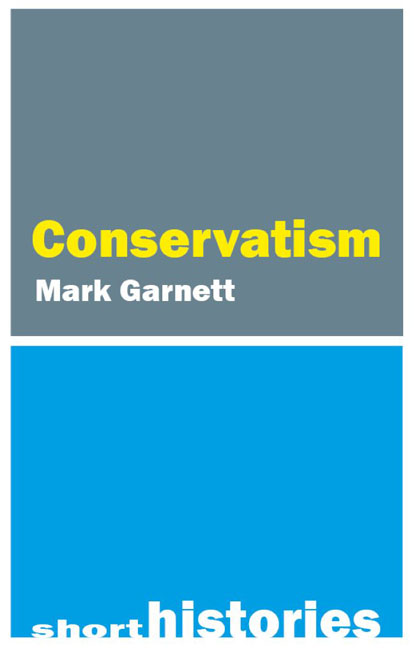Book contents
- Frontmatter
- Contents
- Preface
- 1 The contestable conservative tradition: Burke to Southey
- 2 The Conservative Party from Peel to Salisbury
- 3 “Converging streams”: British conservative thought from Southey to Cecil
- 4 The Conservative Party, 1902–45
- 5 “We must have an ideology”: conservatism since the First World War
- 6 The Conservative Party since 1945
- Conclusions: “Is conservatism dead?”
- Chronology of conservatism and the Conservative Party
- Further reading
- Bibliography
- Index
3 - “Converging streams”: British conservative thought from Southey to Cecil
Published online by Cambridge University Press: 20 January 2024
- Frontmatter
- Contents
- Preface
- 1 The contestable conservative tradition: Burke to Southey
- 2 The Conservative Party from Peel to Salisbury
- 3 “Converging streams”: British conservative thought from Southey to Cecil
- 4 The Conservative Party, 1902–45
- 5 “We must have an ideology”: conservatism since the First World War
- 6 The Conservative Party since 1945
- Conclusions: “Is conservatism dead?”
- Chronology of conservatism and the Conservative Party
- Further reading
- Bibliography
- Index
Summary
In a debate of 31 May 1866, the Liberal MP John Stuart Mill intervened to clarify an earlier remark he had made about the Conservative Party, which, he feared, “has some appearance of being less polite than I should wish always to be”. In describing the opposition as “the stupidest party”, he had not meant “that Conservatives are generally stupid; I meant, that stupid persons are generally Conservative. I believe that to be so obvious and undeniable a fact that I hardly think any hon. Gentleman will question it”. In fact, Conservatives should celebrate their stupidity, which helped to explain their political success: “there is a dense solid force in sheer stupidity – such, that a few able men, with that force pressing behind them, are assured of victory in many a struggle” (Hansard HC Deb., 31 May 1866).
Mill's celebrated sally might have entertained MPs on his own side of the House, but in essence it reheated an argument which had appeared in print way back in 1840. His celebrated essay on Coleridge (see Chapter 1) implied that conservatives were “bigots” who could only find intellectual and moral salvation in teachings which were infused with liberalism (Mill 1840: 300–302). Mill seemed generally bemused to find that a conservative, like Coleridge, could have written anything worth reading.
By 1866 Mill had more reason for regarding Coleridge as a freakish exception to conservative stupidity, because no thinker of comparable stature had emerged in the interim. Indeed, Coleridge's best-known intellectual disciples, like the Christian socialist F. D. Maurice, and the liberal Thomas Arnold of Rugby School fame, had incorporated elements of his work within different ideological frameworks, while W. E. Gladstone had seen the error of his ways and at the time of Mill's speech was chancellor of the exchequer in a Liberal government. In part, the lack of an obvious successor to Coleridge (or indeed to Southey) reflected the dominant role in political debate of the periodical press. The typical contribution was an extended essay dealing with contemporary issues rather than fundamental principles (McDowell 1959).
- Type
- Chapter
- Information
- Conservatism , pp. 67 - 82Publisher: Agenda PublishingPrint publication year: 2023

